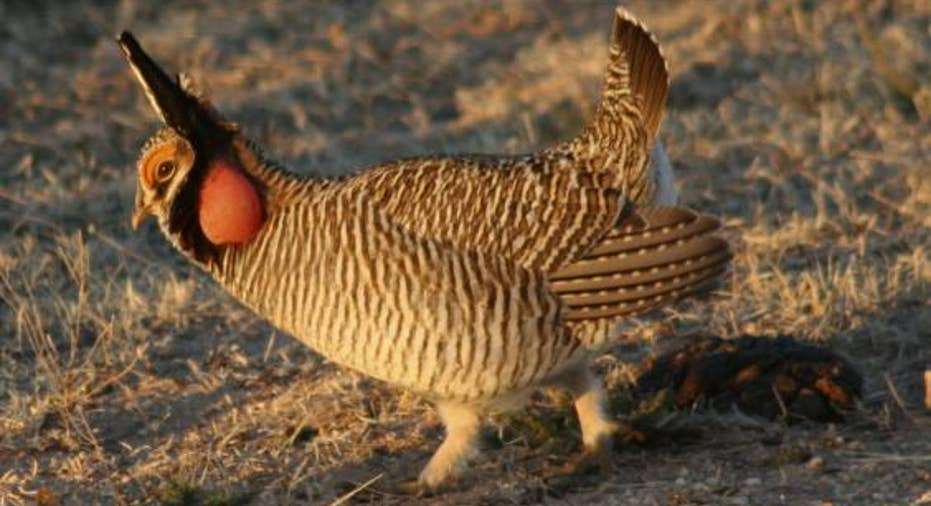Govt Playing Chicken With Nation's Energy Independence

Meet the Lesser Prairie chicken. Which I like to call Louie.
Louis lives in portions of Texas, Colorado, Kansas, New Mexico and Oklahoma. The very same places that are rich in oil and natural gas.
The Permian Basin, for example, an oil field which straddles Texas and New Mexico, supplies almost 70% of the Lone Star state's production and 20% of the nation's production.
But not if the U.S. Fish and Wildlife Service can help it. They are trying to get Louie and all his relatives declared endangered, which means the species would be protected and drilling would be halted.
Sound familiar?
The same thing happened with the Dune Sagebrush lizard. Which I like to call Lizzie. We told you all about Lizzie. And the story here is the same, another species whose natural habitat is Texas.
Fortunately for us, the state worked out a plan to please both environmentalists and the energy industry but it’s an open question what will happen with Louie.
What's disturbing about the story of these two species is the federal government appears to be using the endangered species act as a weapon against the oil and gas industry.
This despite the fact President Obama, like every other president, has called for our nation to become energy independent.
Let's face it; it's hard to do that if you don't drill.
At any rate, there is good news on this topic. The U.S. is poised to become energy independent over the next three decades.
The reason? Not Obama policies, I can assure you of that.
No, crude oil production is rising fast to 7.5 million barrels per day in 2019.
Natural gas is also booming and will continue booming through 2040.
In just eight short years, it will account for 27% of total energy production in this country.
That's all good news -- more production more independence from Mideast countries that don't like us all that much in the first place.
And, if you're thinking -- what about Louie and Lizzie?
I'd introduce you to the Golden Eagle. A species threatened by the many windmills in California. The eagles’ wings get caught in the windmills and they die. Despite complaints from environmentalists, the Golden eagle isn't being protected -- presumably because wind energy is one of the pet causes of this administration.
Some species seem to be more important than others.
What we need to do is embrace the energy production we are doing, which can make us self-sustaining and more powerful. And that is a good thing for Louie, Lizzie and the Golden Eagle.



















